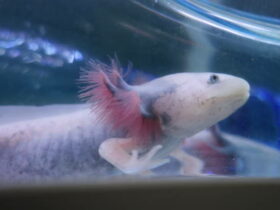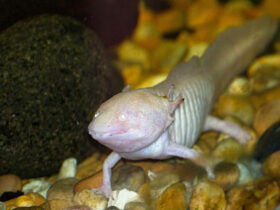
Because of how much you love your dog, we know you want the best for her. Because of this, we have included a brief overview of the topics we will cover with you about your Labrador’s health. By understanding the unique threats to Labrador Retrievers’ health, we can better prepare for and ideally head off any untoward outcomes.
The Labrador Retriever Dog Breed is known for its high levels of activity and its fondness for the water. Another possible effect is a pervasive sense of seeing them. That’s hardly surprising given that the Labrador Retriever is consistently ranked as one of America’s favorite canine companions (and in much of the world). Find out whether a Labrador Retriever is the ideal dog for you by reading on, and discover everything from the breed’s hunting dog heritage to tips on taking care of your very own Lab best buddy.
Contents
Health Concerns for Your Labrador Retriever Dog Breed
Diseases and health problems in pets are often inherited and hence linked to the breed they come from. Researchers in canine genetics and veterinarians agree that the disorders we’ve outlined here have a notably high prevalence and/or a profound effect on the breed as a whole. That does not guarantee that your dog will have these issues, but she is at a higher risk than other dogs. To give you a sense of what may be in store for her in the future, we shall explain the most prevalent problems found in Labrador Retriever Dog Breed. We can’t possibly include every possible symptom or indicator, so please contact us if you experience anything out of the ordinary.
The most relevant genetic predispositions for Labrador Retrievers are detailed, along with basic canine health information. Together, we may use this data to prepare for your pet’s specific medical requirements. We’ve included some tips for maintaining your Lab’s health and beauty at home at the conclusion of the piece. Because of this, you will be able to keep an eye out for any potential problems, and you and I can both rest easier knowing that your friend is in the finest hands possible.
Oral Illness
By the time they’re two years old, almost all dogs will have some kind of dental disease. Unfortunately, dental issues are more common in Labs than in other breeds of dogs. Tartar accumulation on teeth is the first stage of dental illness, which ultimately leads to inflammation of the gums and tooth roots. Your friend’s teeth might fall out, and her kidneys, liver, heart, and joints could be damaged if we don’t take care of dental problems. Your Lab’s lifespan may be shortened by as much as three years. Your dog’s teeth will be professionally cleaned on a regular basis, and we’ll provide you tips on how to maintain a gleaming smile at home.
Diseases Common in Labrador Retriever Dog Breed
It’s important to note that Labrador Retrievers, like other dogs, are vulnerable to bacterial and viral diseases, including parvo, rabies, and distemper. We will advise immunization against many of these diseases because of her age, the prevalence of these illnesses in our location, and other considerations.
Obesity
Labrador Retriever Dog Breed have serious health issues as a result of its weight. It is a dangerous illness that has been linked to or exacerbates a wide range of health issues, including arthritic pain, metabolic and digestive difficulties, chronic back pain, and even heart disease. It’s hard to resist your friend’s pleading eyes when she’s hungry, but “loving her to death” with table scraps and dog treats isn’t necessary. Instead, you should snuggle with her, wash her hair or teeth, play a game, or go on a stroll with her. The two of you will benefit from her improved state of mind.
Parasites
Insects and worms of many shapes and sizes may find their way through your Lab’s skin and organs. Her skin and ears are vulnerable to parasites of all kinds, including fleas, ticks, and ear mites. She might develop hookworms, roundworms, heartworms, and whipworms through ingesting polluted water or soil or from being bitten by an infected mosquito. These parasites pose a threat to you and your loved ones since they may be spread from person to person. Regular testing is necessary because these parasites may cause serious illness or even death in your dog. We will also suggest prophylactic medicine for her well-being.
Remove the Risk: Spay/Neuter Today!
Spaying your Labrador is one of the finest decisions you can make for her (neutered for males). The ovaries and uterus are surgically removed in females, while the testicles are removed in men. Your pet’s risk of developing cancer is reduced, and unwanted litter is prevented when you get them spayed or neutered. While your dog is under anesthesia for this procedure, we may also check for and treat any preexisting conditions.
You and your best friend will both benefit by scheduling any necessary medical procedures for your pet now, such as hip X-rays or a puppy’s tooth extraction. We may also detect and prepare for common disorders that raise anesthetic or surgical risk by doing routine blood tests before surgery. Don’t worry, and we’ll talk about what exactly we’ll be searching for and how to find it when the time comes.
A Labrador Retriever’s Perfect Owner
A Labrador Retriever’s perfect human friend would share the dog’s enthusiasm for play. This may include going for long walks or runs, going swimming, or playing catch with a ball. However, due to the Lab’s background as a working dog, regular walks alone aren’t sufficient for its activity needs. Your Lab will be the happiest if you engage him or her in cognitively stimulating activities like hide-and-seek, puzzle toys, and trick training.
Academic Obedience Exercises
A lab will quickly master basic obedience commands and be ready for more advanced training with regular positive reinforcement. Although labs have a reputation for being easily sidetracked, this trait may be greatly reduced with regular mental and physical stimulation, such as when you teach your Lab a new skill in a calm, distraction-free setting.
Due to their intelligence and calm demeanor, Labrador Retrievers make fantastic assistance dogs. Companion animals for the sick or disabled labs are capable of performing sophisticated duties like moving a patient into the recovery posture or triggering an emergency communication device. The Guiding Dogs for the Blind organization claims that Labrador retrievers are the best guide dogs. This exceptional nose can also be used in search and rescue and excels in high-stakes situations like water rescue. When it comes to dogs, Labrador Retrievers are the real deal.
Cleaning and Trimming Your Labrador Retriever
To most Labrador Retriever owners, grooming will come as second nature. The undercoat of a Lab’s thick double coat is shed twice a year, in the spring and autumn (or year-round in temperate climates). You may aid the shedding process by brushing them every day while they are in season to do so. Brushing once a week should be plenty for upkeep throughout the remainder of the year. If your Labrador Retriever enjoys finding stinky things to roll in, he or she may need regular washes. Regular nail clipping and tooth brushing are essential for the health of a Labrador Retriever’s mouth and gums, as they are for any dog.
Characteristics of a Labrador Retriever
The Labrador Retriever was selected for its sociability and is expected to get along well with everyone. They are naturally kind, but their professional experiences have given them an upbeat, courageous, optimistic demeanor. The intelligence and inquisitive nature that makes Labs such effective assistance dogs also make them more inclined to wander off or vanish without a trace in search of whatever it was that caught their attention (squirrel?). To avoid this kind of situation, many Labrador Retriever dog owners choose to get their pets microchipped.
Perfect Setup for a Labrador Retriever
Labrador Retrievers need a lot of playtimes and walks in the park. In addition, retrieving is in their blood; the name says it all. A lab needs a house with a sizable yard or access to a large open area where it may play fetch for an extended period of time every day. These dogs are popular among busy families because of their playful nature and good temperament.
Conclusion
Use the American Kennel Club’s (AKC) breeder locator to locate a reliable Labrador Retriever breeding facility in your area. AKC members are subject to rigorous standards. Ask about any known health problems in the dog’s ancestry and whether or if any genetic testing is recommended when you go to see the dog. Adopting a rescued Labrador Retriever is an alternative to purchasing a dog. Rescue animals, in contrast to pups, often arrive already spayed or neutered and up to date on their vaccinations.
Many Labrador Retrievers at shelters have been abandoned by their owners, so they usually come with some training and socialization. Just because they don’t fit your ideal client profile doesn’t imply you can’t collaborate with them. If your dog hasn’t had much formal training or has experienced trauma, it’s best to seek the advice of a professional dog trainer.
Click here to read, the top 20 most common dog breeds in USA by Adopt Anim.








Leave a Reply